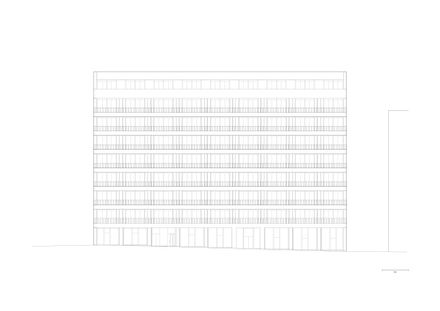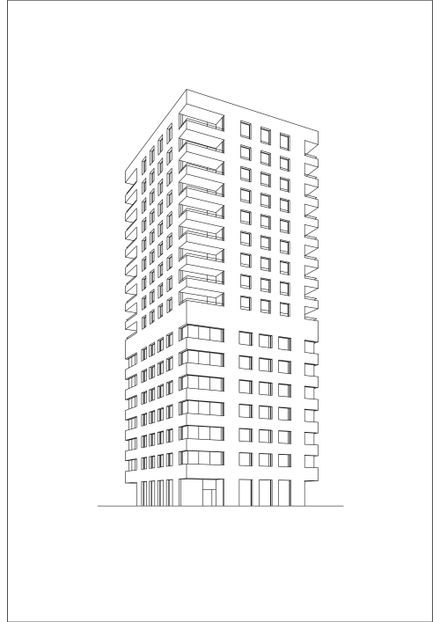
Lyon Confluence Mixed-Use Quarter
ARCHITECTS
David Chipperfield Architects
CLIENT
Bouygues Immobilier (Blocks A1n, A2n), Linkcity (Block A1s)
LANDSCAPE ARCHITECT
Wirtz International Cogeci
STRUCTURAL ENGINEER
Cogeci
SERVICES ENGINEER
Quadriplus Groupe
BUILDING PHYSICS
Katene
LIGHTING CONSULTANT
Katene
ACOUSTIC CONSULTANT
Acouphen
QUANTITY SURVEYOR
Procobat
BUILDING CONTROL
Socotec
CONSULTANT
Milieu Studio
DIRECTOR
Benito Blanco, David Chipperfield, Billy Prendergast
LOCAL ARCHITECT
Aires Mateus E Associados (Buildings B, G, L)
TEAM
Madiha Ahmad, Ricardo Alvarez, Jose Azevedo, Matt Ball, Sebastian Drewes, Christian Esteves, Johannes Feder, Micha Gamper, Clemens Gerritzen, Tom Herre, Theo Kirn, Joseph Little, Michela Marabelli, Joseph Marchbank, Simone Michel, Tram Huong Ngo, Antonis Papamichel, Renato Pimenta, Evangelos Pournaras, Sascha Peter Wurm, Richard Youel
LOCATION
Lyon, France
CATEGORY
Urban Planning, Mixed Use Architecture, Social Housing
The centre of Lyon is located on a peninsula created by the Rhône and Saône rivers as they converge. The southern tip – La Confluence – has largely been used for industry although, over the last ten years, it has begun to be redeveloped.
David Chipperfield Architects was appointed to coordinate three blocks with eleven buildings within a masterplan by Herzog & de Meuron for the second phase of the city centre's extension into La Confluence.
This role entailed adapting the wider masterplan to the specific site and proposed programme as well as developing strategies for the landscape and the general massing, organisation and façade design of the buildings.
The process involved mediating between and coordinating with the city, clients, sustainability consultants, landscape architects and the other architects involved in the site. Regular collaborative workshops were held to test and develop the proposals.
The ambition is to create a mixed-use quarter with a focus on social and environmental sustainability. Containing a range of housing tenures, offices and a health centre, the buildings are architecturally coherent in material quality but individual in character. Within each block the buildings are grouped to define garden courtyards.
Transparent and permeable ground-floors give access to the gardens from the street and, together with the strategic positioning of communal spaces and retail units, help to animate the surrounding public spaces.
As well as coordinating this quarter, the practice was appointed to design three individual buildings, one within each of the blocks. These include a social housing building, a mixed-use tower and an office building. All three are shaped by their structure and defined by their simple rectilinear forms yet react to their specific location in different ways.
The social housing building is made from cross laminated timber wrapped externally in a precast concrete façade of alternating bands of profiled and smooth panels.
Deep recesses in two of its façades create loggias for the apartments facing a public square to the south and the garden to the east. The entrance hall provides a link from street to garden while a café opens towards the public square.
The mixed-use tower contains offices on the lower floors and apartments above. Together with a second tower by Aires Mateus it creates an entrance gesture for the new quarter.
In reaction to its dense context, the building has large windows at its corners on the office levels with corresponding balconies in the apartments, offering views over the city and river. The in-situ concrete façade with its continuous board marked texture emphasises the sculptural quality of the building.
The office building is prominently located on the river front and is designed for flexibility and a potential future conversion into apartments, ensuring the long-term sustainability of the building. Balconies run along the two principal façades, facing the river and garden respectively.
These are articulated by in-situ concrete columns that stand proud of a recessed timber façade. A central hall links to an open staircase, expressed in the west façade, that connects the building to the garden.


































